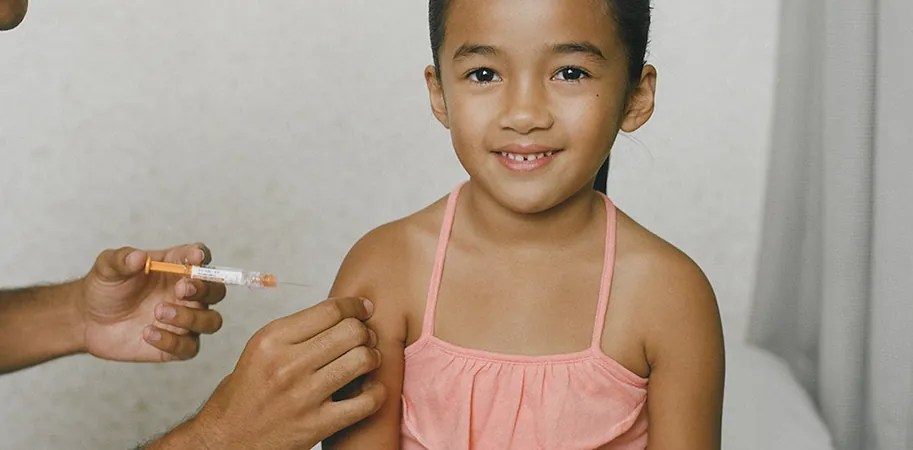
Measles Resurgence Sparks Urgent Call for MMR Vaccination: An Expert Weighs In
2025-04-10
Author: Wei Ling
As measles outbreaks flare up in the U.S. and Canada, health experts are sounding the alarm about the critical need for MMR vaccinations. Once eradicated in the U.S. in 2000, the disease is making a troubling comeback, with recent incidents underscoring the stakes.
The Current Crisis
After two decades of success, an outbreak in Texas in April 2025 sent shockwaves through the nation, leading to 57 hospitalizations and the tragic deaths of two unvaccinated children. Meanwhile, Canada is grappling with its largest measles outbreak in 14 years, while England saw nearly 3,000 confirmed cases and one death just last year.
The Importance of Vaccination
Before the introduction of the measles vaccine in the U.K. in 1968, the disease infected virtually every child, resulting in hundreds of thousands of cases annually and over 100 deaths in peak years. The evolution to the MMR vaccine, which protects against measles, mumps, and rubella, aimed to eliminate these conditions, but achieving and maintaining high vaccination rates remains a challenge.
Measles: A Deadly Threat
Measles is not only highly contagious but also has severe complications such as pneumonia and brain inflammation. While one dose provides around 95% protection, two doses with at least 95% coverage are essential to prevent outbreaks.
The Shadow of Vaccine Hesitancy
In 1998, a faulty study suggested a link between the MMR vaccine and autism, leading many parents to forgo vaccinations for their children. Although the study was retracted and many subsequent studies found no link, the shadow of fear lingers. Currently, only 89% of two-year-olds in England have received their first MMR dose, with just 83.9% fully vaccinated by age five—leaving over 10% of children unprotected.
Disparities in Vaccination Rates
Vaccine uptake varies dramatically across regions. In some London areas, half of children starting school are unvaccinated. The aftermath of the COVID pandemic has further complicated challenges, with many children missing vital vaccinations.
Understanding Vaccine Hesitancy
Vaccine hesitancy, defined by the WHO as the reluctance to accept vaccinations despite their availability, has been exacerbated since COVID. Surveys show fluctuating confidence in vaccine safety among parents, reflecting broader societal debates about vaccination.
Addressing Barriers to Vaccination
Data indicates that children from the U.K.'s most deprived areas face hurdles in receiving the MMR vaccine. Parents often report difficulties in scheduling or attending appointments. To combat this, health services must find innovative solutions—offering vaccines during weekends, at accessible locations, and even during other health appointments.
A Call to Action
The time for preventive action is now. Health authorities require sustained efforts and increased funding to improve vaccination rates and protect communities from the resurgence of measles and other preventable diseases. The stakes couldn't be higher—every unvaccinated child represents a potential risk to public health.

 Brasil (PT)
Brasil (PT)
 Canada (EN)
Canada (EN)
 Chile (ES)
Chile (ES)
 Česko (CS)
Česko (CS)
 대한민국 (KO)
대한민국 (KO)
 España (ES)
España (ES)
 France (FR)
France (FR)
 Hong Kong (EN)
Hong Kong (EN)
 Italia (IT)
Italia (IT)
 日本 (JA)
日本 (JA)
 Magyarország (HU)
Magyarország (HU)
 Norge (NO)
Norge (NO)
 Polska (PL)
Polska (PL)
 Schweiz (DE)
Schweiz (DE)
 Singapore (EN)
Singapore (EN)
 Sverige (SV)
Sverige (SV)
 Suomi (FI)
Suomi (FI)
 Türkiye (TR)
Türkiye (TR)
 الإمارات العربية المتحدة (AR)
الإمارات العربية المتحدة (AR)